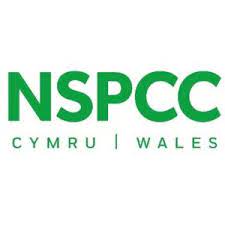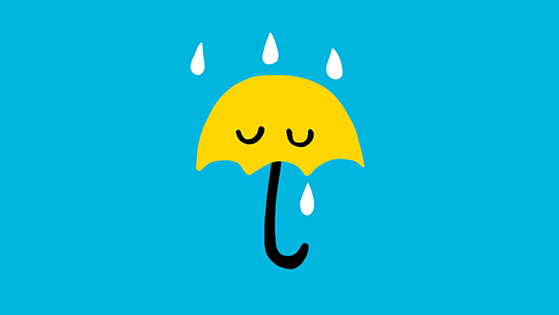
Anti-Bullying Week is an annual event in Wales and across the UK that aims to raise awareness of bullying of children and young people and highlights ways of preventing and responding to it. The week is co-ordinated by the Anti-Bullying Alliance and this year’s theme is One Kind Word.
Ahead of Anti-Bullying Week, (w/c 15 November) NSPCC Cymru/Wales is offering snapshots from young people who have contacted the charity’s Childline service, a quote from a Childline spokesperson, advice for parents and carers and spokespeople available for interview.
Childline snapshots from young people in Wales
“Since I went to high school I have been bullied. I get left out of things and people say mean stuff about me. Before coronavirus the bullies had been getting more and more mean and a couple of times I got physically bullied. I am really worried about going to back to school.”
(Girl, aged 14, from Wales).
“I have been getting nasty anonymous online messages. It’s literally tearing me apart. At first, I thought it was just something that would pass over time, but it has been going on for a month now and I have started to self-harm. I don’t know what I’ve done to deserve the bullying I’m getting. At first it was about my sexuality, then my weight and my looks, and now I am being told to kill myself. I appreciate all of you at Childline who are working during these difficult times, and helping children like me going through hard things.” (Girl, aged 12, from Wales).
Quote from Childline Team Manager for Cardiff
Louise Israel, a team manager for Childline in Wales, said: “The last 18 months have been extremely tough for children due to the challenges they’ve had to face because of the coronavirus pandemic.
“As well as grappling with home schooling, being isolated from family and friends and dealing with worries about the virus, some children were also being bullied.
“Our counsellors spoke to many children who said that the bullying that they experienced in person prior to the pandemic transferred online during the national lockdowns.
“Many of these children as well as others who experienced this issue before the pandemic told Childline that the lockdowns made the online bullying feel even more overwhelming. They told us that the extra time they were spending online for their education, entertainment and to keep in contact with loved ones was making the bullying feel inescapable.
“Although Childline has heard from a significantly lower number of children about in-person bullying over the past year, we saw counselling sessions on this issue peak at times when the lockdowns were lifted and when children returned to school.
“For some children, the lockdowns provided them some respite from the bullying that they had previously experienced meaning many felt really anxious at the thought of returning to school.
“As we continue to move out of the pandemic and adjust to the new normal, it is essential that children know where to turn to for support.
“Our trained counsellors are always here for children and believe that no child should have to deal with bullying alone.”
What help is available?
Sometimes children find it hard to talk to a trusted adult they know. They can contact Childline for free, confidential support and advice 24 hours day, 7 days a week on 0800 1111 or www.childline.org.uk. Childline has 12 bases across the UK, including two in Wales – one in Cardiff and one in Prestatyn.
Children can also visit Childline’s Calm Zone, which offers a lot of practical tips and activities on how to de-stress, and there are moderated message boards where they can find peer support.
Advice for parents and carers:
One of the ways parents and carers can support children and young people if they think they are being bullied is to look out for the signs. Bullying can occur in person and online, so it’s important to know the signs of both.
Signs to spot that your child may be being bullied online:
- Not wanting to go to school or take part in normal activities.
- Getting anxious or angry if you go near their device.
- Feeling withdrawn, upset or angry at home.
- Problems sleeping or eating.
- Having angry outbursts that seem out of character.
- Spending more or less time online than normal.
Signs to spot that your child may be being bullied in person
- Belongings are getting lost or damaged.
- Physical injuries such as unexplained bruises.
- Being afraid to go to school.
- Not doing as well at school.
- Being nervous, losing confidence, or becoming distressed and withdrawn.
- Problems with eating or sleeping.
- Bullying others.
What to do if you think your child is being bullied
- Talk to your child and remind them to come to you with anything that might be making them feel anxious or sad. If your child speaks to you about an experience of bullying that they’ve had online or in person, try to remain calm and don’t overwhelm them with questions and reassure them that it will be ok, and that you’re always there for them.
- Show them how to report or block a message that they’ve received from someone online that upsets or worries them.
- Don’t take their device away if they’ve had a negative experience online. Although you may want to do this if they are upset, this may make them feel like whatever has happened is their fault. Instead, suggest they take some time away from the app they received the messages on and do another online activity they enjoy like playing a game.
- Know where you can get further support. Adults can call the NSPCC helpline for advice on 0808 800 5000. There is also further advice on the NSPCC website.

Help keep news FREE for our readers
Supporting your local community newspaper/online news outlet is crucial now more than ever. If you believe in independent journalism, then consider making a valuable contribution by making a one-time or monthly donation. We operate in rural areas where providing unbiased news can be challenging. Read More About Supporting The West Wales Chronicle






















